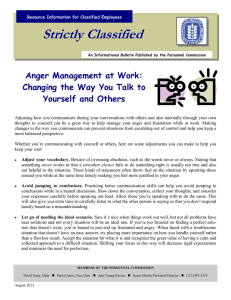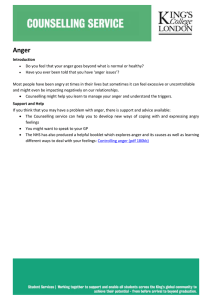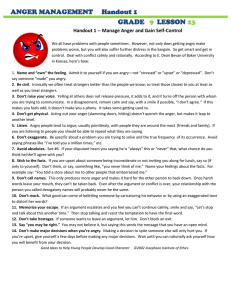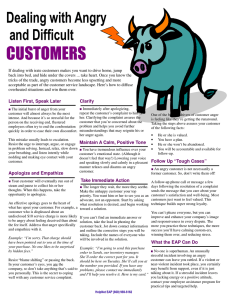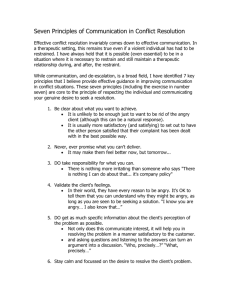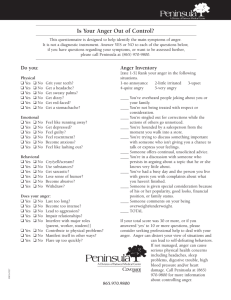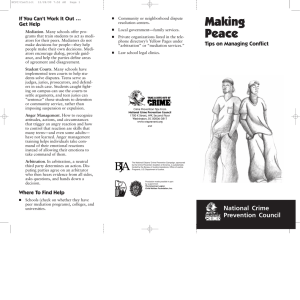How to Manage Your Anger
advertisement
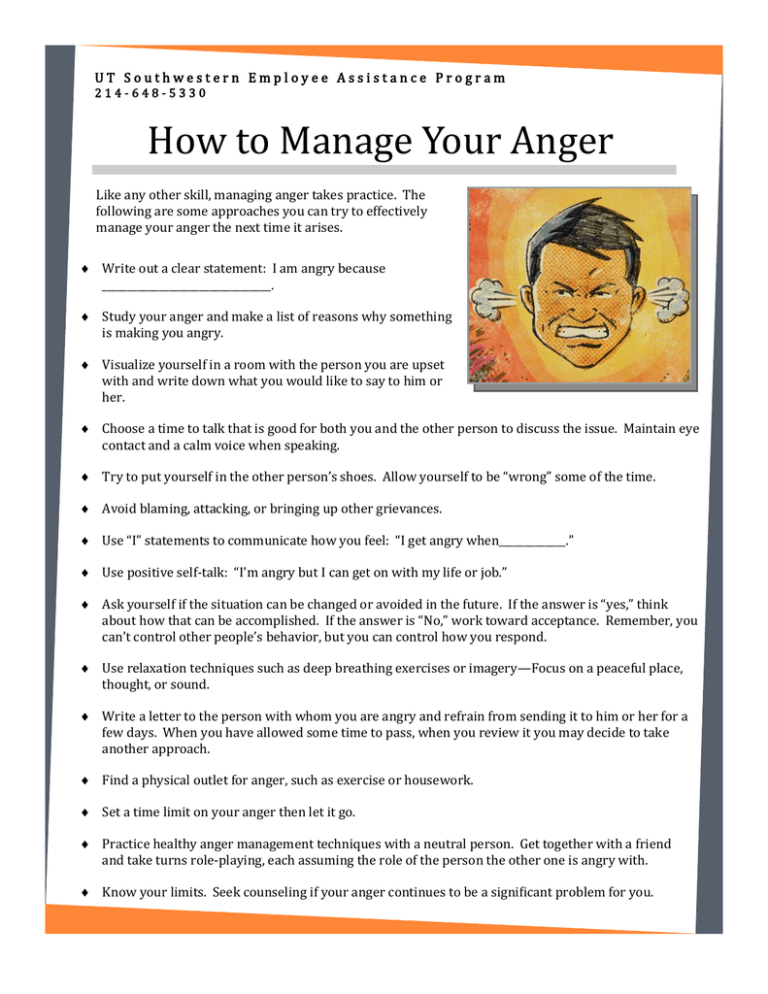
UT Southwestern Employee Assistance Program 214-648-5330 How to Manage Your Anger Like any other skill, managing anger takes practice. The following are some approaches you can try to effectively manage your anger the next time it arises. Write out a clear statement: I am angry because _________________________________. Study your anger and make a list of reasons why something is making you angry. Visualize yourself in a room with the person you are upset with and write down what you would like to say to him or her. Choose a time to talk that is good for both you and the other person to discuss the issue. Maintain eye contact and a calm voice when speaking. Try to put yourself in the other person’s shoes. Allow yourself to be “wrong” some of the time. Avoid blaming, attacking, or bringing up other grievances. Use “I” statements to communicate how you feel: “I get angry when_____________.” Use positive self-talk: “I’m angry but I can get on with my life or job.” Ask yourself if the situation can be changed or avoided in the future. If the answer is “yes,” think about how that can be accomplished. If the answer is “No,” work toward acceptance. Remember, you can’t control other people’s behavior, but you can control how you respond. Use relaxation techniques such as deep breathing exercises or imagery—Focus on a peaceful place, thought, or sound. Write a letter to the person with whom you are angry and refrain from sending it to him or her for a few days. When you have allowed some time to pass, when you review it you may decide to take another approach. Find a physical outlet for anger, such as exercise or housework. Set a time limit on your anger then let it go. Practice healthy anger management techniques with a neutral person. Get together with a friend and take turns role-playing, each assuming the role of the person the other one is angry with. Know your limits. Seek counseling if your anger continues to be a significant problem for you.
